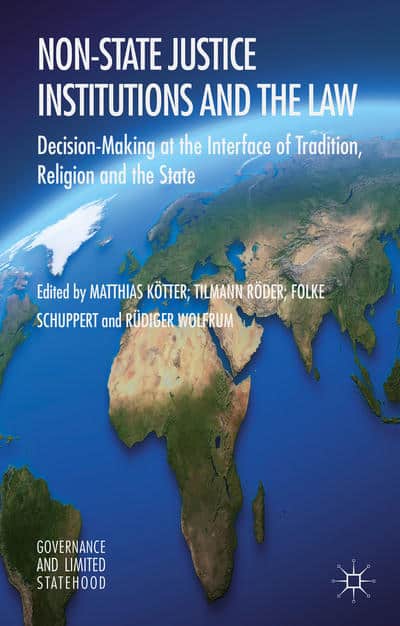Non-state Justice Institutions and the Law. Decision-making at the Interface of Tradition, Religion and the State (past project)
Research Project in Cooperation with WZB Social Science Research Center Berlin
In 2011, the Social Science Research Center Berlin (Wissenschaftszentrum für Sozialforschung Berlin, WZB) and the Max Planck Institute for Comparative Public Law and International Law (MPIL) in Heidelberg co-organised a conference on the relations between state and non-state justice systems. Meanwhile, the Max Planck Foundation has replaced the MPIL in this project.
Currently, a number of researchers are working on a book that analyses the functioning of mixed traditional, religious and statutory normative orders. Research questions include: How do traditional authorities and state courts in a pluralist legal context reach legitimate decisions? And to which extent does legitimate conflict resolution rely on state law or, to the contrary, require its absence?
Five case studies represent changing degrees of interconnectivity and interaction between the different normative systems, reaching from the extreme distance between Pushtun jirgas and the Pakistani State to the application of customary law within various statutory and constitutional frameworks in South Sudan, Ethiopia, South Africa and Bolivia. In order to link together formal statutory and informal traditional institutions legislation has been provided in various countries all over the world recently.
The case studies show that this has brought up some difficult theoretical problems of the provision of legality and justice: the legitimacy of any decision-making, the universality of human rights, and the construction of culturally fair and inclusive but also well-functioning justice systems.
Editors
Matthias Kötter (WZB Social Science Research Center Berlin)
Tilmann J. Röder (Max Planck Foundation)
Gunnar Folke Schuppert (WZB Social Science Research Center Berlin)
Rüdiger Wolfrum (Max Planck Foundation)
Publisher
Palgrave Macmillan
Published in January 2015
“Non-state Justice Institutions and the Law” is available on the publisher’s website.

